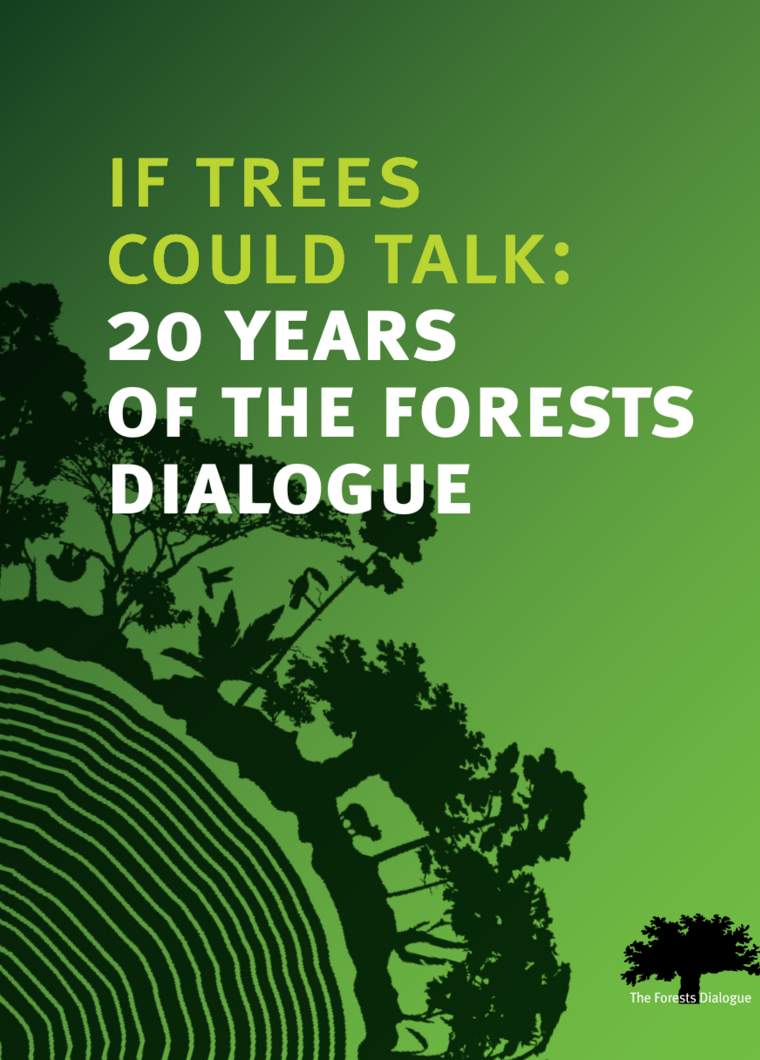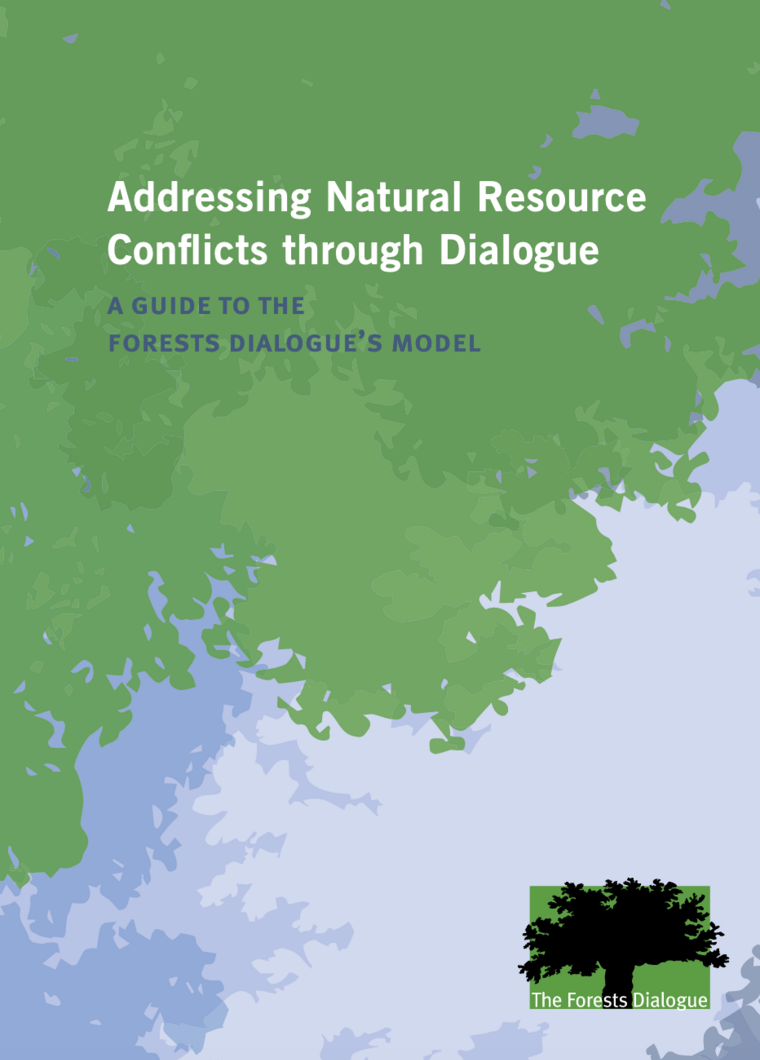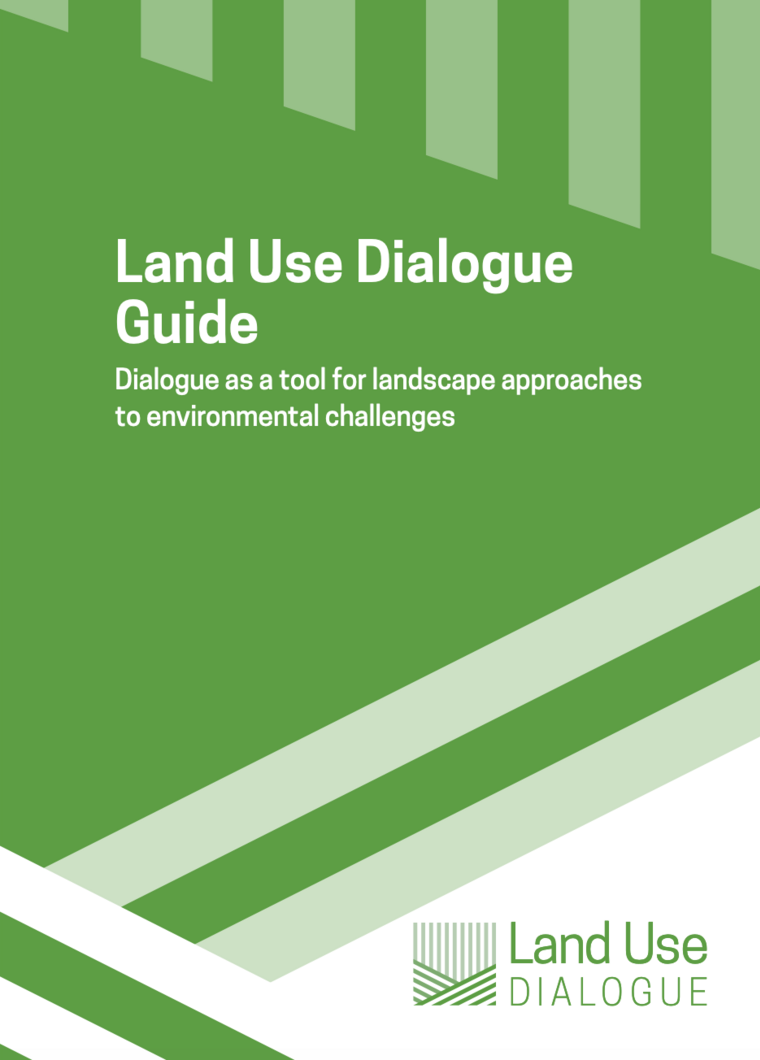Publications
The Forests Dialogue produces and publishes a variety of documents - maintained in a comprehensive library below. The majority of TFD publications are developed through TFD’s initiative process, including the following major publication types. In the lead-up to an initiative, a foundational Scoping Paper is produced to provide context for the scoping dialogue. Background Reports that provide stakeholders with relevant location-specific content are created for each subsequent dialogue following the scoping dialogue. At the conclusion of a dialogue, the co-chairs, with help from the TFD secretariat, produce a Co-chairs’ Summary Report that captures the key perspectives, discussions, agreements, and next steps from the dialogue. At the conclusion of an initiative, the Advisory Group, co-chairs, select leaders, and the Secretariat synthesize the initiative’s conclusions into a TFD Review. Additionally, Country Reports that aggregate learnings from a number of country-specific dialogues are typically produced for initiatives that involve numerous country-level dialogues, including TFD’s REDD+ dialogues. TFD also facilitates the production of guides and policy recommendations including a guide to the TFD process, the Land Use Dialogue methodology. These are geared towards practitioners or policy makers and contain actionable steps that stakeholders can take to enact change based on learnings gathered through the TFD process.
Navigate TFD’s extensive publication database using the search function below, or visit specific dialogue or initiative pages to see their associated publications.
The Forests Dialogue’s consensus-based Statement on Forests and Climate Change, produced after 4 international multi-stakeholder dialoges involving more than 250 leaders from around the world. Includes recommended actions and issue-specific briefing notes.
On 9 December 2007, TFD convened an initial scoping dialogue under the theme of forests and climate in Bali, Indonesia coinciding with the 13th Conference of the Parties of the United Nations’ Framework Convention on Climate Change.
The Forests Dialogue (TFD) is developing a new initiative on forests and climate.
Through this process stakeholders within the broader forest community can identify
and address the complex emerging issues of forests as an integrated part of the
climate solution. This initiative is a result of an initial scoping dialogue held in Bali,
This analytical paper summarizes major issues relating to climate change and forests. Forests play four major roles in climate change: (1) they contribute about 20% of total global carbon dioxide emissions when cleared, overused or
On 20-21 September, 2007, The Forests Dialogue (TFD) met in Santa Cruz, Bolivia with a wide array of stakeholders to discuss approaches to maximize commercial forestry’s potential to reduce poverty.
Collectively, small/family forest landowners are responsible for the care and
management of the majority of forestland in Europe, North American as well as the
intensively managed planted forest development in the “global south”. If combined
with forestland under the tenure/control/management of local communities, this
The Forests Dialogue (TFD) will convene a multistakeholder dialogue with
associated field visits in Sumatra, Indonesia in March 2007 to continue its
exploration of intensively managed planted forests (IMPFs). The objective of this
dialogue initiative is to identify the conditions under which IMPFs can deliver an
From 5 March to 8 March, The Forests Dialogue (TFD) convened 68 international leaders from the forest products industry, finance and investment sector, labor, the NGO community,academia, government, and local indigenous and rural communities in Riau province, Indonesia for site visits and dialogue on intensively managed planted forests (IMPF).
On 4 March, 2007, The Forests Dialogue (TFD) met with representatives from community groups, business and labor to discuss approaches to maximize commercial forestry’s potential to reduce poverty.
In October 2003 thirty stakeholders came together in Santa Cruz de Cabralia, Brazil, for a dialogue convened by THE FORESTS DIALOGUE (TFD). The focus of the discussion was on forestry and biodiversity conservation.




